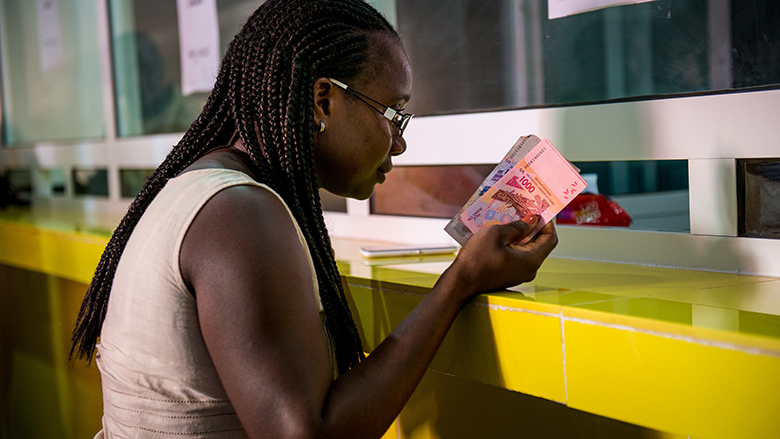With 2 billion adults worldwide lacking access to formal financial services, promoting broader financial inclusion has risen to the top of the global development agenda.
Through its Universal Financial Access 2020 initiative, the World Bank Group is focusing on enabling access to a transaction account in 25 countries where 73% of the world’s unbanked live. Access to a transaction account is considered to be the first step toward broader financial conclusion, where individuals can access a variety of financial products tailored to their needs.
To review efforts to achieve broader financial inclusion, nearly 200 scholars, development practitioners, private-sector partners and policy advocates gathered at a day-long workshop in June, convened by the World Bank’s Chief Economist for Equitable Growth, Finance and Institutions, William Maloney, and the Center for Effective Global Action (CEGA).
Developing more precise knowledge of the financial challenges faced by the under-served “is key for how poor people manage their households, how they manage financial shocks and how they invest in productive assets,” said William F. Maloney, the Chief Economist of the Bank Group’s Vice Presidency for Equitable Growth, Finance and Institutions.
“We now want to . . . bring a partnership together of the public sector, the private sector and the research community,” said Paul Gertler, a professor of economics at the University of California, Berkeley and a senior scholar at CEGA, “to see if we can develop a program to generate evidence to answer the types of questions [that] governments need to intervene in this sector effectively.”
Access to financial services seems poised to make dramatic progress, yet steps toward expanded inclusion have been hindered by the high cost of delivering banking services; rural residents’ long travel distances to bank branches; and burdensome regulatory and paperwork requirements for opening an account, said Ceyla Pazarbasioglu, Adviser in the Finance and Markets Global Practice of the Bank Group, in framing the conference priorities.

